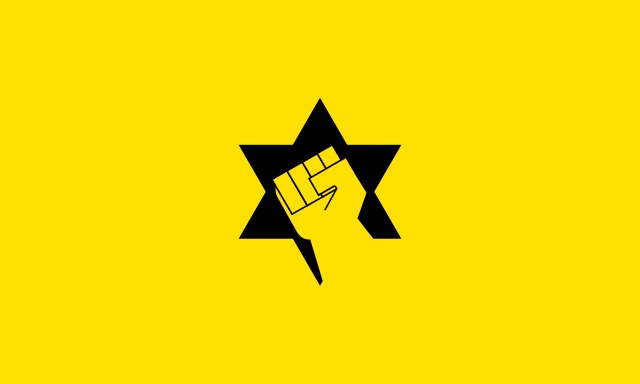This is the third essay in a series on The Caducean Phenomenon.
In Hollywood cinema of 1980s and '90s, the blond, blue-eyed bully became a cliché, a stock antagonist to the plucky nerd or outcast, who will, in the end, "get the girl." In many instances, the Nordic or Germanic "look" was an immediate signal to the audience: "This is the bad guy." The trope has never really gone out of style. "Johnny Lawrence"—"Daniel LaRusso's" arch-nemesis in The Karate Kid (1984)—is paradigmatic: cocky and jealous, Johnny is more physically imposing, regimented, and aggressive than Daniel. All of this is summarized in the slogan of Johnny's dojo: "Strike first. Strike hard. No Mercy!" The central conflict of the film is bride gathering: Johnny is obsessed with Ali, a pretty, blonde, and rich girl, who only has eyes for Daniel. It is worth noting that though Johnny might have generated a stereotype, he was actually depicted with depth and sympathy: he is morally disturbed by his sensei's order to "sweep the leg" in the final match, and ultimately congratulates Daniel on his victory, in the spirit of good sportsmanship.
Robert Mark Kamen (b.1947), the creator of *The Karate Kid *series, had himself experienced bullying as a young man growing up in New York; at his wits end and determined to defend himself, he studied both a martial and defensive form of Karate. Daniel LaRusso is announced as "Italian" in the film, a transplant to Sunny California from Newark, New Jersey. It is not much of a stretch to view him as a stand-in for Kamen, as well as being coded Jewish, if not, in fact, Jewish within the context of the film. "Dan" in his name is likely a reference to the Tribe of Dan, one of the Twelve of Israel.1 Additionally, LaRusso or "the red" can have multiple connotation; in this instance, the name suggests blood admixture, that is, his success in winning over the beautiful Ali. In turn, Daniel's sensei, Mr. Miyagi, emerges as a spiritual, even rabbinical figure, particularly as contrasted to the Vietnam veteran "John Kreese," the sensei of Cobra Kai. Mr. Miyagi suffered during the Second World, suggesting that he had lived through something analogous or metaphorically connected to the Jewish experience. In his case, Miyagi and his wife were sent to an internment camp at the onset of the war. Miyagi then joined the Army and was even decorated as a hero; however, while overseas, he received news of the death of his wife and unborn child in the camp.
At first glance, with Johnny and Daniel, we have a battle between Aryan and Semite, not only on the mat but over a woman—with the Semite coming out on top. In effect, "David" is fighting "Goliath." And on a superficial level, this is what the story is about. It might be shocking to discover, however, that Johnny, the blond hero, is esoterically indicated as Jewish, or at least a man serving Jewish interests. Indeed, Kamen composed, not just a "coming of age tale," but a commentary on radical Jewish politics in the last quarter of the 20th century. "Cobra Kai" is likely a reference to Kach, a militant nationalist political party in Israel, founded by Meir Kahane (1932-1990). It was ultimately banned in the late '80s for promoting racism and considered a terrorist organiztion in many countries, including the United States. Kach's flag shared a color scheme with Cobra Kai (yellow and gold) and featured a clinched fist superimposed on a star of David. Intriguingly, after Kahane was assassinated in New York City in 1990, his son created a splinter group, "Kahane Chai" ("Kahane Lives"), which seems like a homonym for "Cobra Kai." Regardless, Cobra Kai adopts the symbolism of the snake and and thus reveals itself as one head of the caduceus.
The Jewish identity of Johnny Lawrence is confirmed, albeit somewhat ambiguously, in the streaming series Cobra Kai (2018), which "rebooted" the franchise with the original actors. We meet Johnny as a down-on-his luck loner, who seeks to restart his old dojo and prove he's a real man. In an early episode, we are introduced to Johnny's step-father, "Sid Weinberg," who relates to his adopted son, "When I met your mom, she really knocked my socks off. Beautiful, blonde, tan … tight. Little did I know I’d be taking care of her schmuck kid forever."2 It's an almost satirical rendition of a typical Jewish attitude towards "Shiksas," and one that stands in contrast to Daniel's infatuation with Ali. Might Johnny be an Aryan, adopted by a Jew, who "overdoes it" in his enthusiasm for Judaism? Might his travails indicate that he is "Job writ small," devoted to Yahweh yet born to suffer? What is most important is the nature of the battle between Miyagi dojo and Cobra Kai. It is a battle between racist Zionists and Jewish Americans struggling for assimilation. It is caducean in its essence.
Protagonists named "Dan" and "Dani" recur throughout Hollywood cinema, such as Midsommar (2019), The Shining (1980), Terminator: Dark Fate (2019), and others. In many cases, this is a reference to their "secret identity." That said, as Freud might say, "sometimes a cigar is just a cigar": any name identification must be corroborated with other elements in the story and symbolism.
"Ace Degenerate," Cobra Kai, Netflix 2018.







Great review. Btw originally Daniel was 'Daniel Webber' (Jewish sounding) but T.Cruise, R.Downey Jr, C.Sheen werent available & gave it to R.Macchio & were forced to make him Italian from NJ. (Apparently Daniel lived in Newark, was never picked on by 'the locals'. Then moves to Beverly Hills where all 'the thugs' are. Lol). The "Aryan bad guy' trope failed miserably as many kids like myself liked both Johhny & Daniel as kids. Now Johnny is more 'based'. Has a wicked stepfather (Jewish) & ironically Johnny is now even more beloved by 'Karate Kid' fans.